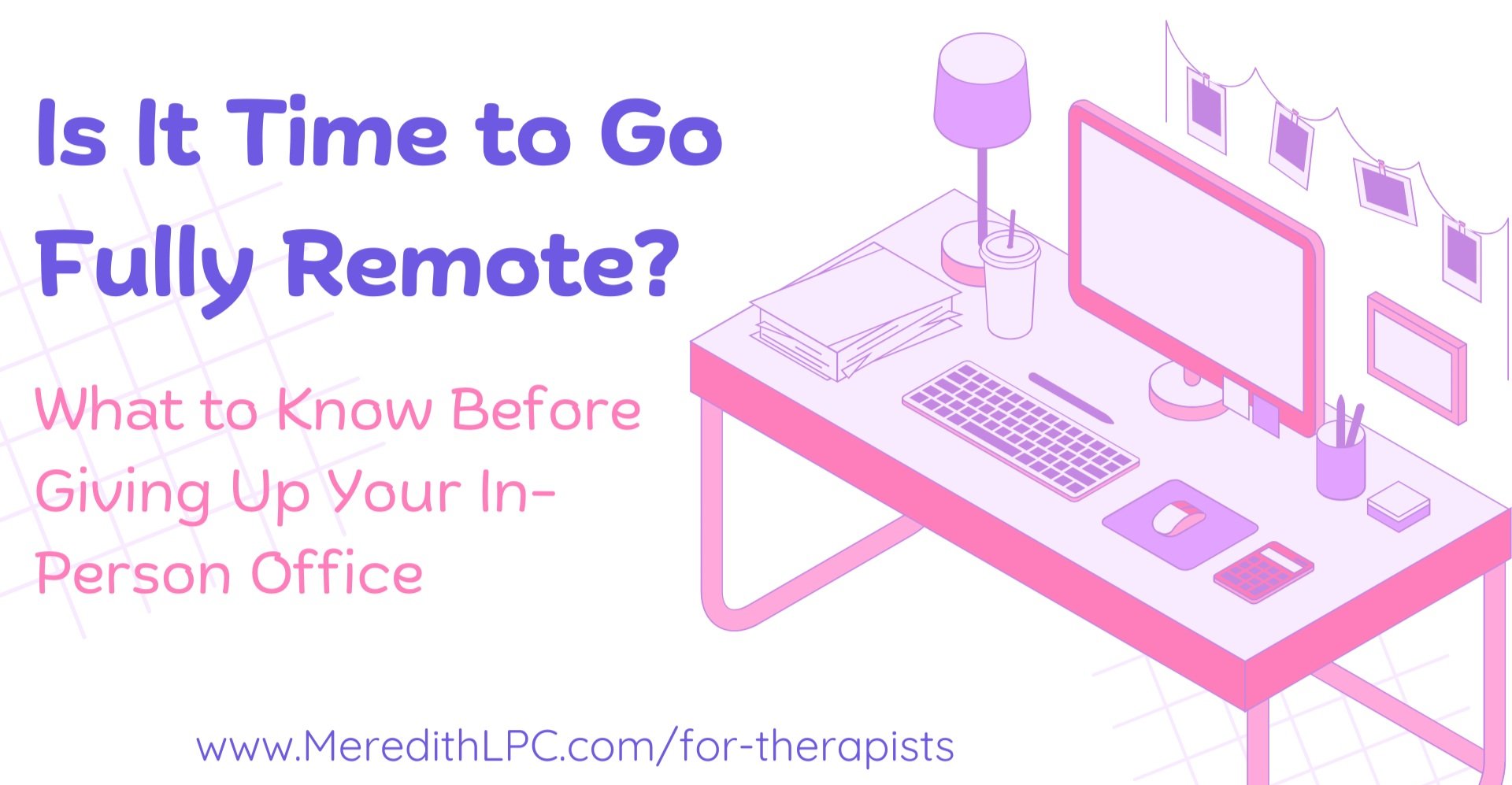The Biggest Mistakes Therapists Make When Starting a Private Practice (and How to Avoid Them!)
So, you’ve finally decided to take the leap and start your own private practice—congratulations! You’re ready to leave agency work behind, become your own boss, and create the flexible schedule you’ve always wanted. But before you start choosing office décor or perfecting your Psychology Today profile, let’s talk about the biggest mistakes therapists make when starting a private practice.
While private practice can be incredibly rewarding, it’s also easy to fall into a few common (and avoidable) traps. Here’s what to watch out for—and how to set yourself up for long-term success.
1. Winging It Without a Business Plan
You’re a therapist, not a business major, but running a private practice means... well, running a business. Many therapists dive in without a solid business plan, only to find themselves overwhelmed by expenses, unclear goals, and inconsistent income.
Pro Tip: Create a clear business plan that outlines your target population, fee structure, marketing strategy, and financial goals. Even a simple, one-page plan can give you clarity and direction.
2. Ignoring the Importance of Niche and Ideal Client
“I’ll see anyone who needs help!” Sound familiar? While having an open heart is great, trying to be everything to everyone is a fast track to burnout. A lack of specialization can make it harder to attract clients who truly resonate with your expertise.
Pro Tip: Identify your niche and ideal client. Are you passionate about working with anxious millennials? Supporting couples navigating relationship stress? Treating substance abuse? When you clarify your niche, your ideal clients will start finding you.
3. Setting Fees Without Confidence (or Strategy)
The fee conversation is one of the hardest parts of starting a practice. Many new therapists undercharge because they feel guilty or fear they’ll lose clients if they set rates too high. But setting low fees can lead to financial stress and undervalue your skills.
Pro Tip: Set your fees based on your experience, expertise, and the value you provide. Consider market rates in your area but remember—you’re offering a life-changing service. Own your worth.
4. Underestimating Marketing (Hint: It’s More Than a Website)
Just having a nice website won’t fill your schedule. Many therapists assume “if I build it, they will come,” but without a solid marketing plan, your ideal clients might not even know you exist.
Pro Tip: Develop a multi-pronged marketing strategy. This might include SEO-optimized blog posts (like this one), social media engagement, networking with referral sources, and ensuring your online profiles are complete and compelling.
5. Neglecting Systems and Boundaries
You’re a therapist because you care deeply about people—but without clear boundaries, you risk burnout. Many therapists forget to establish systems for scheduling, communication, and billing, leading to unnecessary stress.
Pro Tip: Automate where possible. Use a secure EHR system to handle scheduling, payments, and paperwork. Set clear boundaries with clients about availability and communication. Consider using AI to streamline operations. Protect your time and energy.
6. Skipping Professional Support and Consultation
Trying to do it all on your own? You don’t have to. Many therapists assume they can figure it out as they go, only to feel isolated and overwhelmed when challenges arise.
Pro Tip: Invest in consultation and mentorship. Working with someone who’s been there can save you time, money, and headaches. A consultation can provide personalized guidance on everything from building your client base to navigating insurance.
Ready to Build a Thriving Private Practice? Let’s Talk.
If you’re feeling a little (or a lot) overwhelmed about starting your private practice, I’m here to help. I specialize in helping therapists build sustainable, successful practices without the guesswork.
Schedule a consultation session today to gain the clarity, confidence, and strategy you need to create a practice that works for you.
With a little planning, confidence, and support, you’ll be well on your way to building the practice of your dreams. Let’s get started.
Related Articles: How to Start a Private Practice Without Feeling Overwhelmed
Common Scams That Target Therapists—And How to Avoid Them
The Best Productivity Tools for Private Practice Therapists (That Actually Make Your Life Easier)


